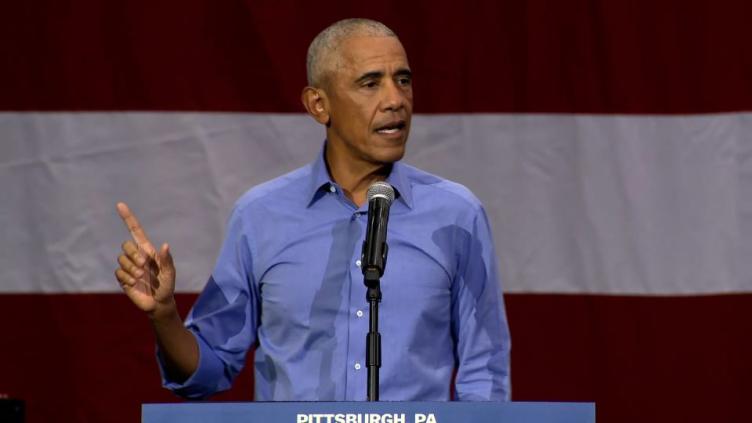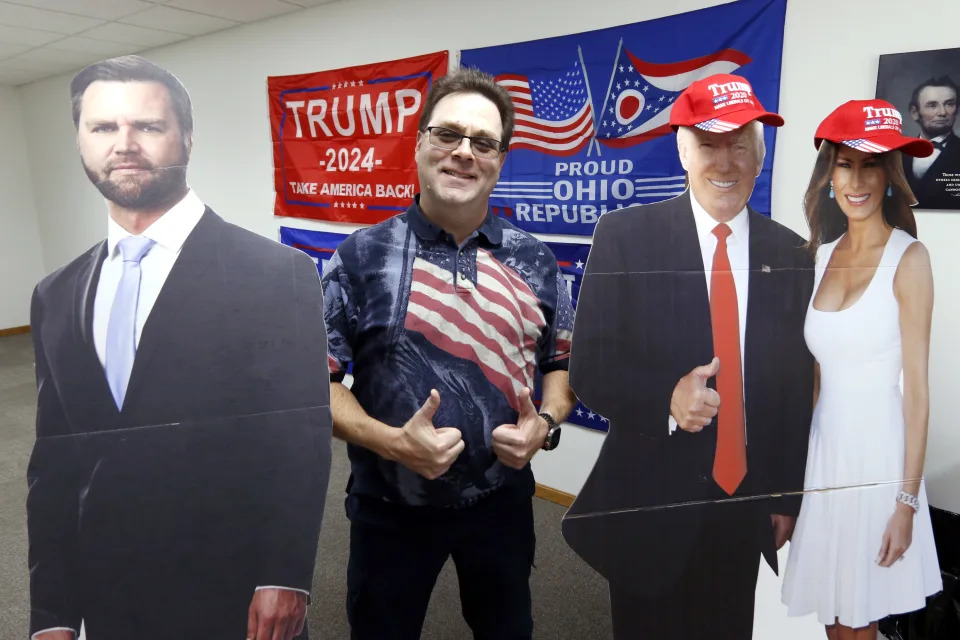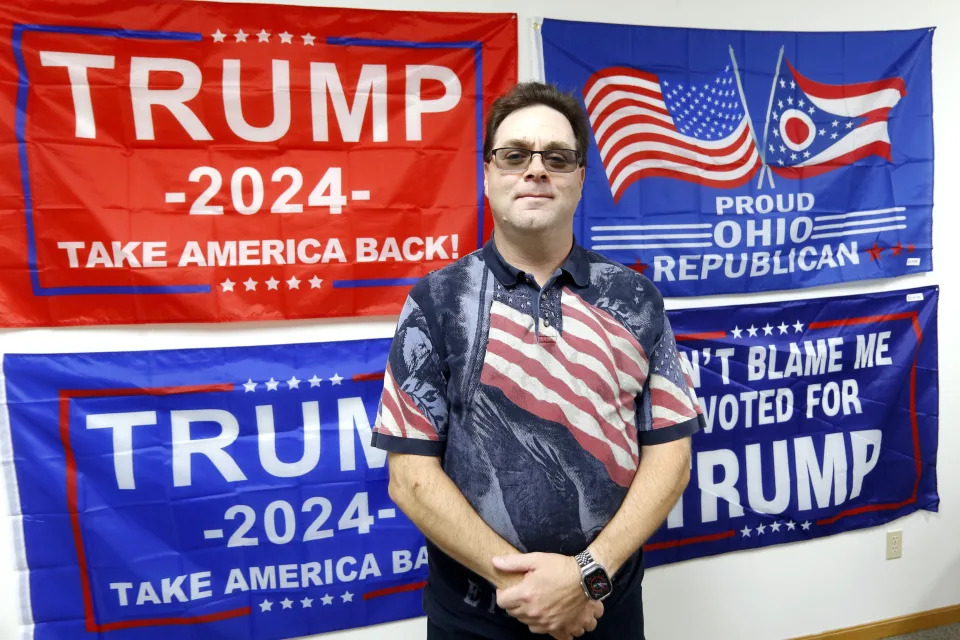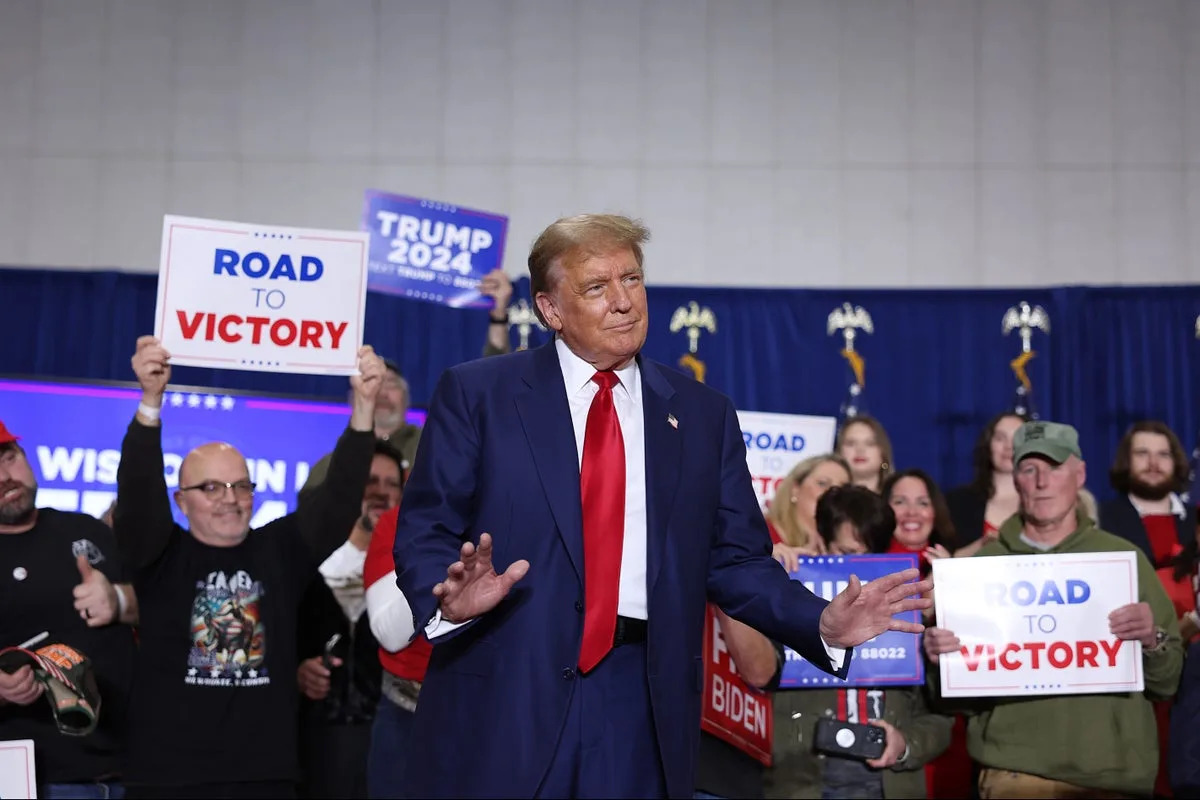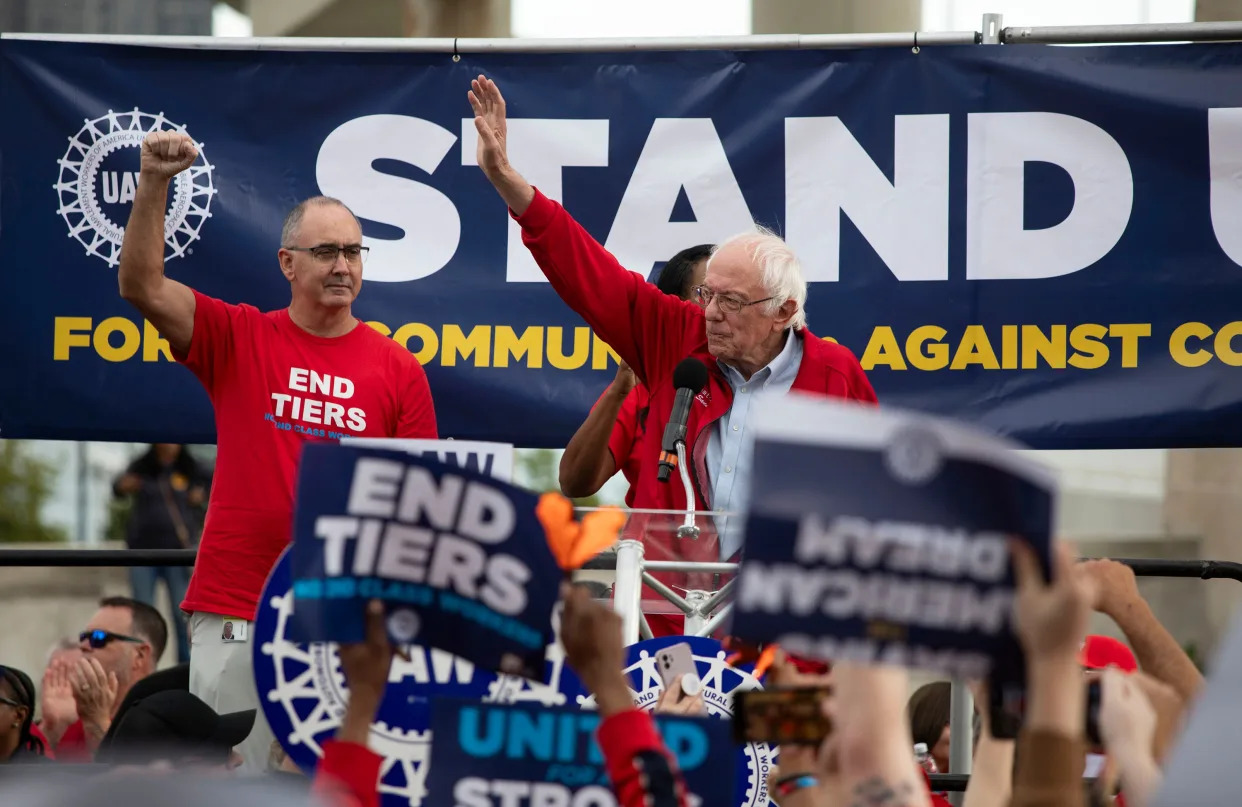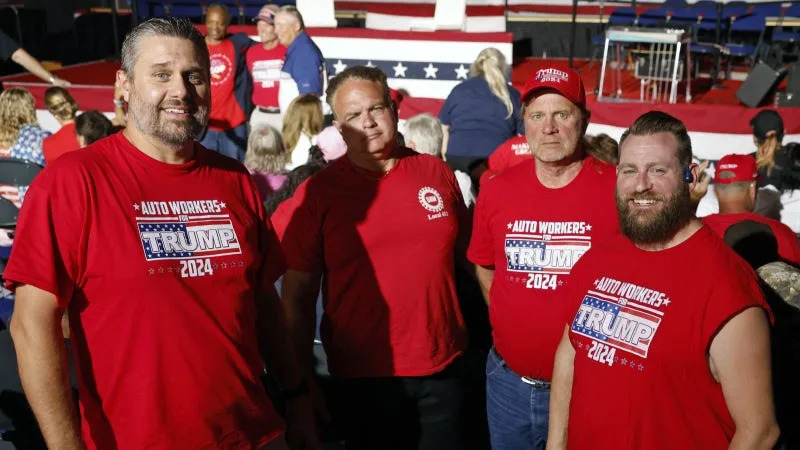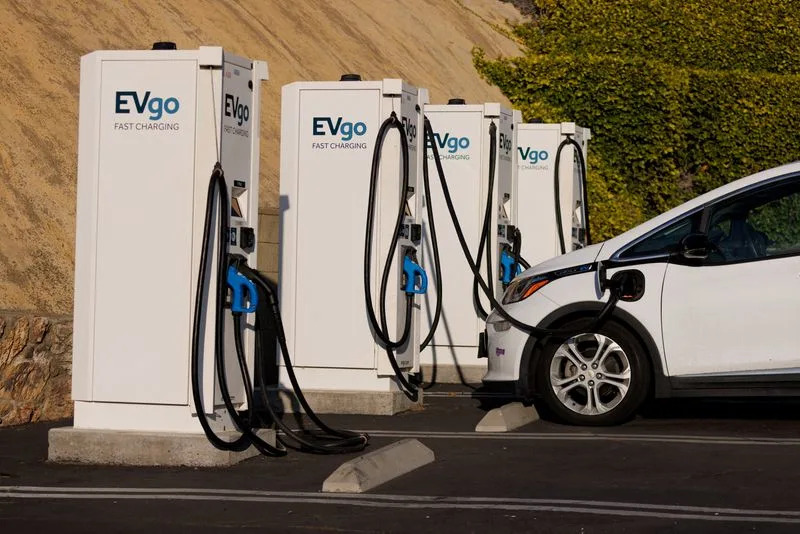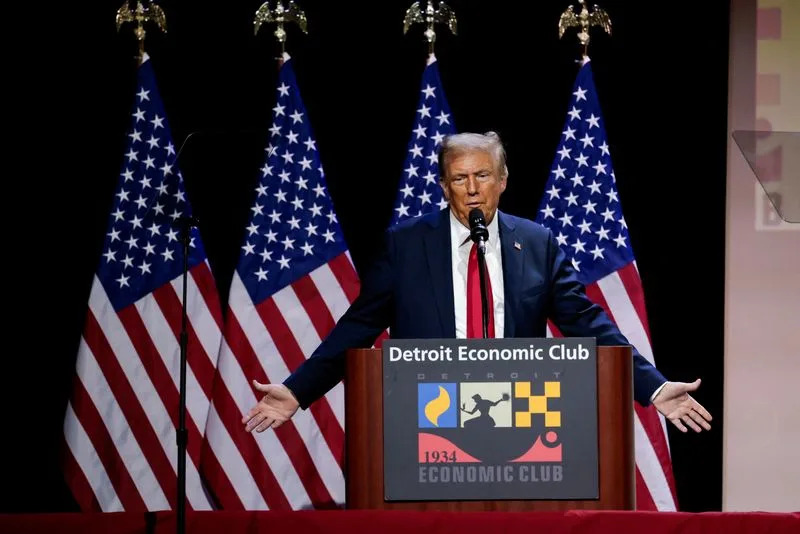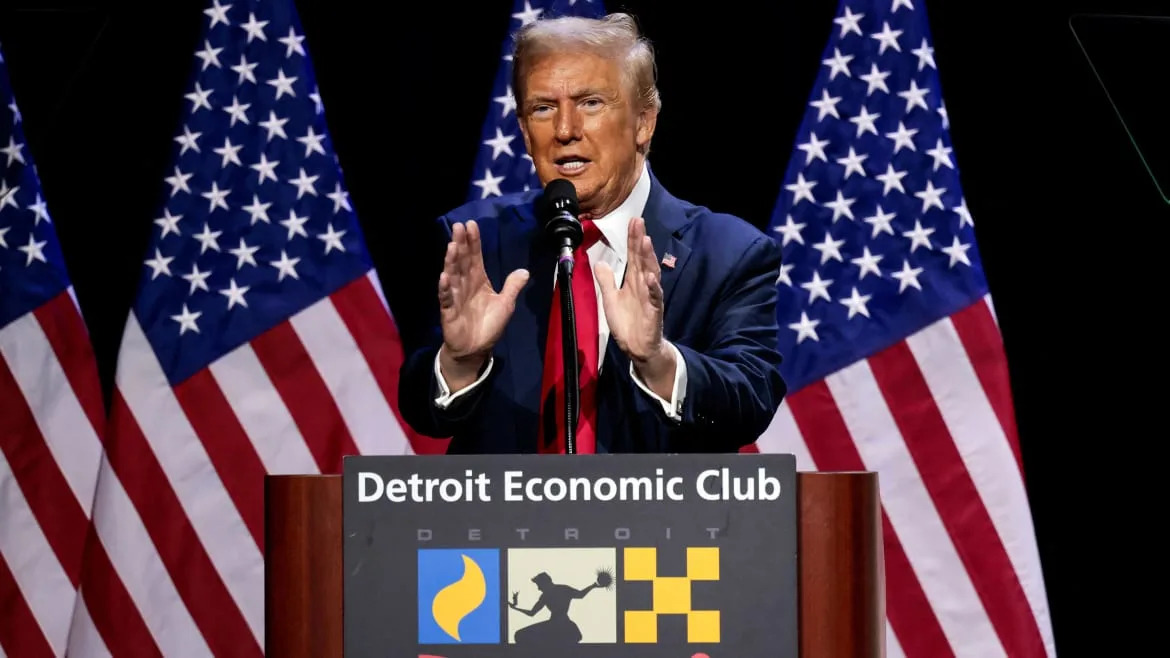Why Trump accuses people of wrongdoing he himself committed − an explanation of projection
April Johnson, Kennesaw State University
Thu, October 10, 2024
THE CONVERSATION
Donald Trump accuses others of acts he has done
Donald Trump has a particular formula he uses to convey messages to his supporters and opponents alike: He highlights others’ wrongdoings even though he has committed similar acts himself.
On Oct. 3, 2024, Trump accused the Biden administration of spending Federal Emergency Management Agency funds – money meant for disaster relief – on services for immigrants. Biden did no such thing, but Trump did during his time in the White House, including to pay for additional detention space.
This is not the first time he has accused someone of something he had done or would do in the future. In 2016, Trump criticized opponent Hillary Clinton’s use of an unsecured personal email server while secretary of state as “extreme carelessness with classified material.” But once he was elected, Trump continued to use his unsecured personal cellphone while in office. And he has been criminally charged with illegally keeping classified government documents after he left office and storing them in his bedroom, bathroom and other places at his Mar-a-Lago estate.

After complaining about how Hillary Clinton handled classified documents, Donald Trump stored national secrets in a bathroom. Justice Department via AP
More recently, the Secret Service arrested a man with a rifle who was allegedly planning to shoot Trump during a round of golf. In the wake of this event, Trump accused Democrats of using “inflammatory language” that stokes the fires of political violence. Meanwhile, Trump himself has a long history of making inflammatory remarks that could potentially incite violence.
As a scholar of both politics and psychology, I’m familiar with the psychological strategies candidates use to persuade the public to support them and to cast their rivals in a negative light. This strategy Trump has used repeatedly is called “projection.” It’s a tactic people use to lessen their own faults by calling out these faults in others.
Projection abounds
There are plenty of examples. During his Sept. 10, 2024, debate with Vice President Kamala Harris, Trump claimed that Democrats were responsible for the July 13 assassination attempt against him. “I probably took a bullet to the head because of the things that they say about me,” he declared.
Earlier in the debate he had falsely accused immigrants in Springfield, Ohio, of eating other people’s pets – a statement that sparked bomb threats and prompted the city’s mayor to declare a state of emergency.
Similarly, congressional investigators and federal prosecutors have found that Trump’s remarks called thousands of people to Washington, D.C., on Jan. 6, 2021, encouraging them to violently storm the Capitol in order to stop the counting of electoral votes.
Trump isn’t the only politician who uses projection. His running mate, JD Vance, claimed “the rejection of the American family is perhaps the most pernicious and the most evil thing the left has done in this country.” Critics quickly pointed out that his own family has a history of dysfunction and drug addiction.
Projection happens on both sides of the political aisle. In reference to Trump’s proposed 10% tariff on all imported goods, the Harris campaign launched social media efforts to condemn the so-called “Trump tequila tax.” While Harris frames this proposal as a sales tax that would devastate middle-class families, she deflects from the fact that inflation has made middle-class life more expensive since she and President Joe Biden took office.
How it works
Projection is one example of unconscious psychological processes called defense mechanisms. Some people find it hard to accept criticism or believe information that they wish were not true. So they seek – and then provide – another explanation for the difference between what’s happening in the world and what’s happening in their minds.
In general, this is called “motivated reasoning,” which is an umbrella phrase used to describe the array of mental gymnastics people use to reconcile their views with reality.
Some examples include seeking out information that confirms their beliefs, dismissing factual claims or creating alternate explanations. For example, a smoker might downplay or simply avoid information related to the link between smoking and lung cancer, or perhaps tell themselves that they don’t smoke as much as they actually do.
Motivated reasoning is not unique to politics. It can be a challenging concept to consider because people tend to think they are fully in control of their decision-making abilities and that they are capable of objectively processing political information. The evidence is clear, however, that there are unconscious thought processes at work, too.
Influencing the audience
Audiences are also susceptible to unconscious psychological dynamics. Research has found that over time, people’s minds subconsciously attach emotions to concepts, names or phrases. So someone might have a particular emotional reaction to the words “gun control,” “Ron DeSantis” or “tax relief.”
And people’s minds also unconsciously create defenses for those seemingly automatic emotions. When a person’s emotions and defenses are questioned, a phenomenon called the “backfire effect” can occur, in which the process of controlling, correcting or counteracting mistaken beliefs ends up reinforcing the person’s beliefs rather than changing them.
For instance, some people may find it hard to believe that the candidate they prefer – whom they believe to be the best person for the job – truly lost an election. So they seek another explanation and accept explanations that justify their beliefs. Perhaps they choose to believe, even in the absence of evidence, that the race was rigged or that many fraudulent votes were cast. And when evidence to the contrary is offered, they insist their views are correct.

Vice President Kamala Harris has campaigned with Liz Cheney, right, a prominent Republican who formerly served in Congress. AP Photo/Mark Schiefelbein
A way out
Fortunately, research shows specific ways to reduce people’s reliance on these automatic psychological processes, including reiterating and providing details of objective facts and – importantly – attempting to correct untruths via a trusted source from the same political party.
For instance, challenges to Democrats’ belief that the Trump-affiliated conservative agenda called Project 2025 is “dangerous” would be more effective coming from a Democrat than from a Republican.
Similarly, a counter to Trump’s claim that the international community is headed toward World War III with Democrats in the White House would be stronger coming from one of Trump’s fellow Republicans. And certainly, statements that Trump “can never be trusted with power again” carries more weight when it comes from the lips of former Republican Vice President Dick Cheney than from any member of the Democratic Party.
Critiques from within a candidate’s own party are not out of the question. But they are certainly improbable given the hotly charged climate that is election season 2024.
This article is republished from The Conversation, a nonprofit, independent news organization bringing you facts and trustworthy analysis to help you make sense of our complex world. It was written by: April Johnson, Kennesaw State University
Read more:
Republicans and Democrats consider each other immoral – even when treated fairly and kindly by the opposition
People ambivalent about political issues support violence more than those with clear opinions
Politicians often warn of American decline – and voters often buy it


